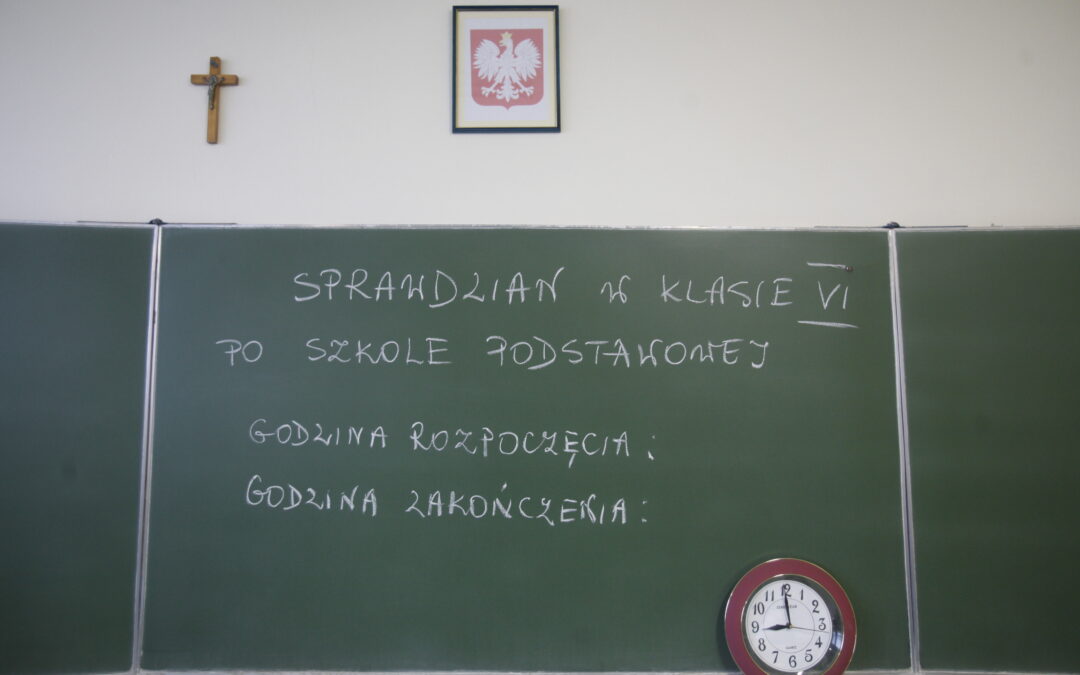
Wrocław’s city council has called for an end to municipal funding for Catholic catechism classes in schools.
They say that the city, which is Poland’s third largest, spends millions of zloty a year on the lessons even though now only a minority of pupils attend them.
However, although that money comes from the municipal budget, any decision on stopping it would have to be made by the national government.
Wrocław council has therefore appealed to the prime minister and education minister for legal solutions to allow the city to cut funding.
In Poland, religion classes are hosted and funded by public schools but with curriculums and teachers (often priests or nuns) chosen by the Catholic church.
The lessons are optional but are attended by the majority of pupils nationwide.
However, recent years have seen falling attendance, especially in large cities, amid growing secularisation and anger towards the church over sex abuse cases and its support for an unpopular near-total ban on abortion.
Data published last week show that only around 15% of secondary-school pupils attend religion classes in Wroclaw, down from 34% in 2018.
Among primary-school pupils – who often attend the classes to prepare for First Communion – the figure is now 63%, down from 80% in 2018, reports the Rzeczpospolita daily.
On Thursday, the city council approved a resolution calling for the “abolition of financing of religion classes from the Wrocław city budget…in view of the very difficult economic situation faced by local authorities and the dynamically rising costs of operating the education system”.
The document notes that the annual cost of paying religion teachers in Wrocław is 18 million zloty (€4 million).
Around 70% of that comes from the national budget but the remaining 30% (over 5 million zloty) is paid by the city.
The resolution points out that, although the proportion of pupils now attending religion classes has fallen below half (standing at 48% this year), that has not reduced the cost of organising the classes, which must be offered for all pupils.
The activists behind the resolution insist that is “is not directed against any religion or any church”. However, in practice, it is classes organised by the Catholic church that would be affected.
Fourteen councillors voted in favour of the resolution, 12 were against and two abstained.
Among those opposed to it were members of the national-conservative Law and Justice (PiS), which rules nationally in Poland, though now looks set to be removed from power after last Sunday’s parliamentary elections.
“You want religion to be removed from schools and communism to return,” declared PiS councillor Piotr Maryński, quoted by Gazeta Wybrocza. “Hard times are coming for conservatives and believers.”
Another of his colleagues, Dariusz Piwoński, said that “92% of Poles are Catholics and they do not want such ideas…Underfunding religion classes would mean they would no longer exist at all”.
The latest national census results, released last month, in fact show that 71% of Poles identified as Catholics when it was conducted in 2021, down from 88% a decade earlier.
Last year, Częstochowa became the first – and still the only – city in Poland to call for an end to municipal financing for religion classes. Shortly afterwards, councillors in Kraków, Poland’s second-largest city, voted to reject a similar resolution.
In response to those previous resolutions, Poland’s commissioner for human rights, Marcin Wiącek, issued an opinion noting that the financing of religion classes in schools from public funds is enshrined in the constitution.
The PiS government has pointed out the same fact in the past.
A nationwide survey by IBRiS for Radio Zet published last year found that 66% of the public want the state to stop financing the church and 44% want religion classes removed from schools entirely.
In 2019, a Kantar poll found that 66% of Poles want religion classes to be funded by the church itself.
Another survey the same year, by SW Research for Rzeczpospolita, found that 55.5% wanted to end state funding for the classes.
